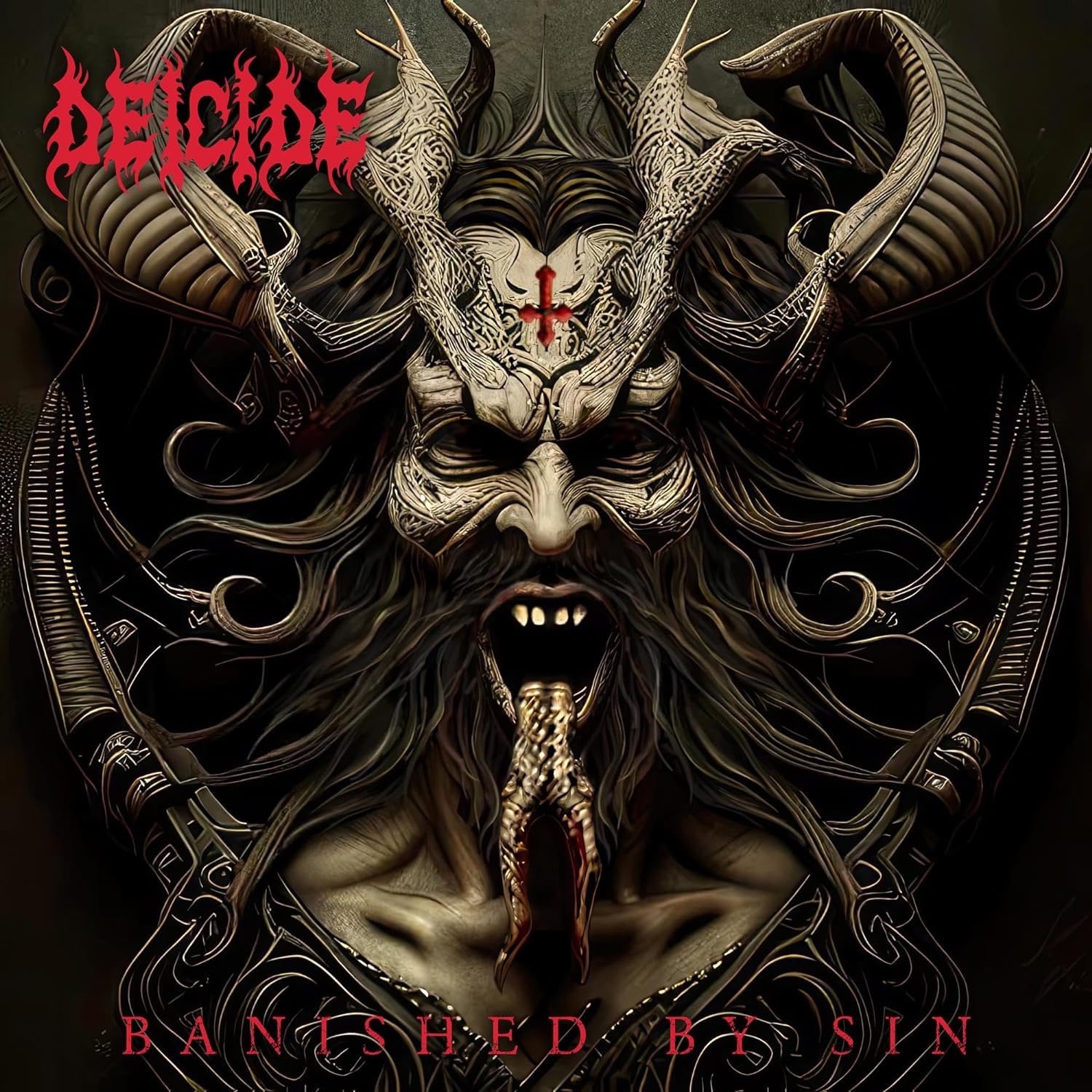Music, in whatever form, should always have emotion at its core. While a band or an artist can be objectively good in a technical sense, it is the rather more subjective emotional resonance that seems to separate the good from the great. It is emotion that makes music an art form that has sat at the cultural core of multiple civilizations across the ages, and that ability to reach out and touch the intangible is something to which all musicians should aspire. In this, some pieces have been more universally successful than others. Barber’s Adagio for strings (successfully employed by Oliver Stone in Platoon) or Ravel’s ‘Bolero’ are perfect examples of pieces of music that cross all boundaries in their quest for the infinite, and it is just such a sense of yearning that informs the work of John Erik Kaada.
A diverse composer, Kaada first came to the attention of SonicAbuse thanks to a collaboration with Mike Patton. The work, the remarkable ‘Bacteria Cult’, was (and remains) a masterpiece – a varied and frequently beautiful (if unsettling) piece of work, it takes advantage of Patton’s remarkable versatility, incorporating a playful element as Kaada explores multiple forms and textures. On the surface and in contrast, ‘Closing statements’ appears to have no such scope for playfulness. An album centered around death and the final statements made by individuals as their end looms near, it sounds nearly unbearable on paper and yet, just as the blues seeks to draw joy from sadness, so Kaada ekes out the hope that emerges from loss, crafting a beautiful, yet diverse series of vignettes in the process. Blurring the lines between the organic beauty of the orchestra and the alien coldness of electronica, the eleven pieces on offer here take the listener on a remarkable journey, always surprising and sometimes even contradictory, it is a record as uncertain as life (and death) itself.
Kaada initially plays to expectation, however. The opening track makes a case for this to indeed be an album of great loss. Despite its seemingly playful title, ‘it must have been the coffee’ is built around a heart-breaking, yet simple piano motif that seems to throb with grief. As the strings, deftly understated, add colour to the piece, memories of personal experience bubble all too readily to the surface, only for a wordless choir to somehow draw the sting at the last minute, edging the listener from the darkness towards the light. It is not until the second track, the bleakly entitled ‘farewell’, that Kaada starts to experiment much more with form. Still piano-led, the central melody is beautiful, drenched in pathos and haunting. Yet, as it progresses, subtle electronic (and pseudo-electronic) elements subvert the orchestral nature of the piece, adding elements that recall Trent Reznor’s work with Atticus Ross on ‘The Social Network’, not to mention Philip Glass, whose film scores (including for the underrated ‘Hamburger Hill’) cleverly draw emotion out of the most unlikely synth soundscapes. Indeed, as the track reaches its crescendo, far from sadness, there’s a moment of inescapable joy before the piano returns to lend a touch of gravity to the track’s denouement. Employing a similarly cinematic feel, ‘everything is an illusion’ builds upon the sense of unreality implicit in the title. Based around a rippling piano-line underpinned with subtle percussive noise, it passes in what feels like a fraction of its run time, the listener disturbed from their reverie only by the sound of a needle hitting the run-off groove as the track segues into the brilliantly unpredictable and somewhat whimsical ‘unknown destination’. A track that draws on heavily processed guitar, synth elements and vocalisations, it once more sees Kaada traverse into John Barry territory, albeit John Barry seen through a Clint Mansell lens. There’s beauty here, as there is throughout all the pieces, but it’s an unexpected beauty that always darts off in new directions. It’s followed by a short segue, the sub-one-minute ‘wonder out loud’, a brief flight of fancy that leads us into ‘on the contrary’, a deeper, darker piece that does much to recall the post-rock territory of Mogwai with its processed percussion and lilting melody. Turn it up loud and allow the ebb and flow of the music to wash over you as Kaada builds in elements that seem almost childlike in the sense of wonder and awe they invoke.
It is, I hope, hard for most readers to imagine ending their lives with the words ‘useless, useless’, and here Kaada’s gentle guitar work captures a sense of the sadness and regret that must have underlain those words. Augmented with (what appear to be) synth pads and wordless vocals that give a strangely western feel to the music, ‘useless, useless’ emerges conflicted, as if the person who uttered those words was torn between continuing the fight and allowing themselves to sink slowly beneath the surface, and that implicit struggle rages throughout the track. That pervasive sense of darkness persists into the somewhat sinister, ‘Clearing out’. A track which emerges from crackling distortion, the central piano remains over-driven in a manner reminiscent of Nine Inch Nails’ ‘still’ album, adding an air of uncertainty. It plays like the soundtrack to an unseen film, and, as a tense rhythm is interjected, so you start to wonder if the subject of the song was not on the run when they met their untimely end. Trills from the woodwind add a sense of flight here, but it’s that echoing, slightly distorted piano that anchors the piece and it urges the listener to see the track through to its inevitable conclusion, foregone though it might be. With a sense of the Shakespearean, ‘more light’ captures both the horror and the humour of Hamlet with what appears to be stair-stepping electronica, wide-screen synth elements and heartbeat percussion. It’s another track that steps deftly into Philip Glass territory, albeit with a lushness that would not sound out of place on a latter-day work from the Orb, and the result is a sort of orchestral ambient that electronic composers will be endeavouring to emulate for years to come. Juxtaposing a fast rhythm with gentle strings, ‘hey unfair, that was my exit’ has a wintry feel to it and, as the piece progresses, so the pace slows, and a choir emerges to sing a final lullaby. There’s loss here, but also light and laughter, as if we’re witness to the end of a life well-lived. The album closes with ‘home in the dark’, a track with a lightness of touch that John Williams would admire. Subtle stabs of woodwind play out over rich swathes of noise a throbbing bass-line providing an unexpectedly sanguine backdrop to a piece that incorporates classical, ambient and even industrial elements into a track quite unlike anything you’ve ever heard before. It provides one last glimpse into the abyss before the album concludes and you realise that it’s daylight, the album has drawn you deep into the imagination and that the sun has been streaming through the windows all along…
It seems typical of Kaada that he is able to be so wilfully atypical whilst weaving these eleven tracks into a coherent piece of music that ebbs and flows across the course of its forty-two-minute run time. Although each track works in isolation (particularly ‘on the contrary’, ‘home in the dark’ and ‘unknown destination’), this is an album that, in slight contradiction to its theme, is meant to be lived as a complete work. It is an album that takes the listener on a journey and it stimulates the emotions in a way that few artists can ever hope to achieve. Like the best artist in any genre, Kaada does not attempt to imitate. Rather, he builds upon the innovations of his forebears, drawing upon numerous disparate genres to create pieces of music that reflect his own emotional truth and, in doing so, he has created a piece of art that is unique. Artists such as Kaada (and, indeed, his one-time collaborator Mike Patton) remind us that it is more important than ever, in these days of commodification, to seek out those things and those people that make us feel. It is, perhaps, easier to spend a life hidden behind a digital screen, detached from contact and emotion, but society will be a much colder place for it. Works such as ‘Closing statements’ remind us that music and emotion are forever, inescapably intertwined and this album stands at the pinnacle of an already great career. 10











Leave a Reply